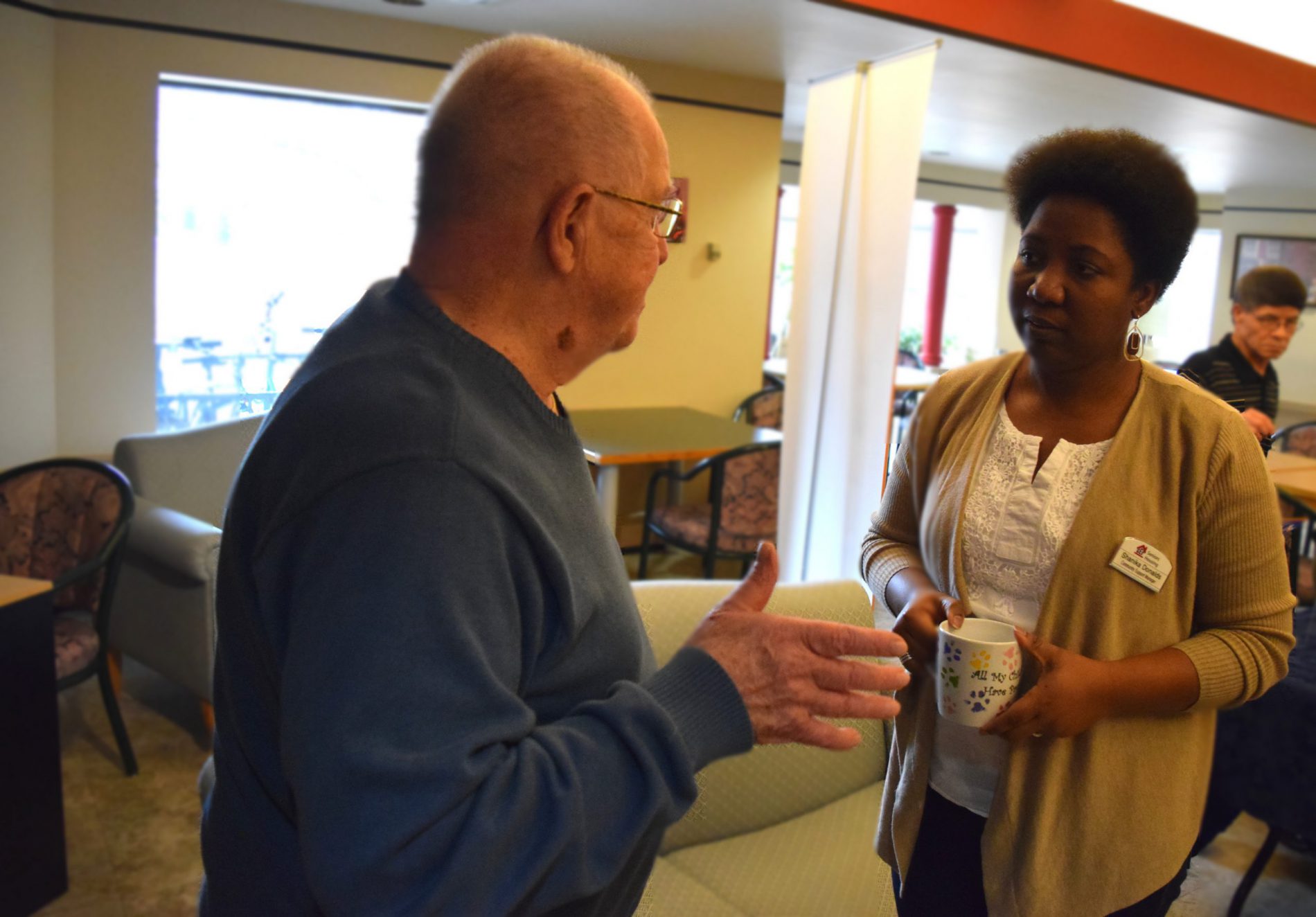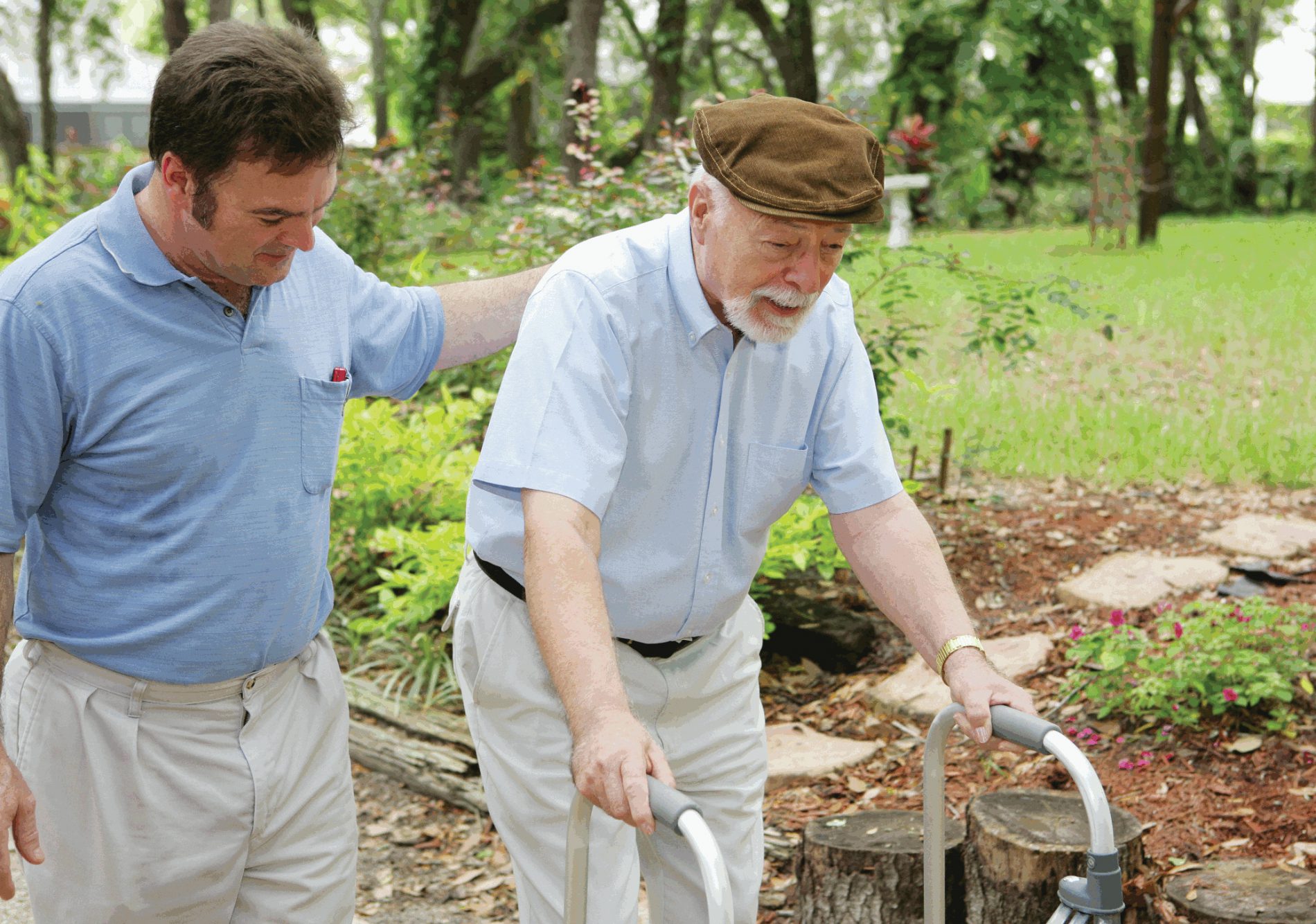Author: vciwork

This is a story that was originally published in the February 2017 edition of Edmonton Prime Times.
Shanika Donalds knows better than most the harsh impacts that social isolation can have on seniors. Her role with GEF Seniors Housing as Community Supports Manager was created to help address the issue of social isolation in the seniors living in GEF Seniors Housing homes. For her, there is no such thing as a typical day. From one-on-one consultations to large-scale presentations during building resident meetings, Donalds and the rest of the Community Support teamwork to find the underlying causes of the individual cases of social isolation and how to best work through those issues.
“One of our main operations as Community Supports is to help address seniors isolation in connection with quality of life, which in short is assessing if a person’s environment fulfills their needs,” says Donalds. “When an individual loses a partner or friends, the number of meaningful interactions declines, and this can include interactions with essential services like doctors and dentists. What we want to do is help those who are feeling isolated make those connections they need and raise their quality of life.”
Donalds and GEF Seniors Housing are just one group that make up the Pan Edmonton Group Addressing Social Isolation in Seniors (PEGASIS), a collective of seven seniors-serving agencies operating in Edmonton. The group is coordinated by the Edmonton Seniors Coordinating Council (ESCC), which facilitates collaboration among seniors-serving organizations across Edmonton to address seniors’ sector issues in the city. Other organizations involved with PEGASIS include the Edmonton Southside Primary Care Network, Sage Seniors Association, the Westend Seniors Activity Centre, the Edmonton Mennonite Centre for Newcomers, and Drive Happiness.

Tim Henderson is the Community Connector and Project Manager for the PEGASIS project with the ESCC and his role is to connect all the seniors serving agencies and see where collaboration works best to help meet the needs of isolated seniors. He explains that this kind of collaboration is a lot of work and takes a lot of commitment and he’s here to help facilitate that collaboration through, “trying to bridge the challenges of government funding and accountability, different organizational cultures, external stakeholders, opportunities, and demands, and help to create a supportive environment for all seniors.”
Reducing social isolation on its surface seems like a straightforward goal, Henderson points out. But once you start breaking down everything that encompasses social isolation, the solutions become much more complicated.
“Research has shown how destructive social isolation can be, and with the social and economic emphasis on individual success with which we live, the risks of, and ballooning costs related to, isolation are enormous as our demographics change and our population ages,” says Henderson. “Aging is something that we are all doing, and ensuring that we get to age well is a collective endeavor. I can’t think of anything more satisfying than working with a group of people to create a population shift in thinking and living.”

Part of the collaborative effort in PEGASIS is ensuring that all the seniors serving agencies in Edmonton know about each other and how their services can help each other and, ultimately, help the seniors who are in need. For example, if a community coordinator with Sage Seniors Association is working with an individual and discovers they can’t get around to see their friends or make it to medical appointments, and it’s affecting their quality of life, that community coordinator with Sage can connect with Drive Happiness to make sure the senior has access to transportation.
“The challenge is honouring the individual agencies and projects while facilitating their learning and capacity to work together in new ways, rather than simply sharing information about what they are doing,” says Henderson.
Henderson also has a clear view as to what success looks like for PEGASIS. “There are two parts to success for PEGASIS,” he explains. “The first will be the real collaboration of the seven partners working together to map out and create a meaningful and workable plan to reduce social isolation now and in the future. The second part will be the expansion of the group collaboration so that we truly are the pan-Edmonton group addressing the social isolation of seniors.”

Donalds explains that her team, with their specific mandate to serve seniors living in GEF Seniors Housing buildings, has its collection of challenges. Residents and tenants living in GEF Seniors Housing buildings pride themselves in living independently, so for many asking for help feels like submitting their independence.
“It’s the opposite where we’re working to ensure that the residents can keep living independently and have access to all the essential services they need while still having those meaningful connections,” says Donalds.
But for every bit of pushback that Donalds may see from the people she works with, she just as often sees seniors immediately acknowledging they need help and embracing what the Community Supports team has to offer.
“One of my proudest achievements is when I get a call from a senior who saw a poster or a brochure and they took the initiative to seek out help,” says Donalds. “Then, it spreads by word of mouth where seniors tell each other they should call us and that it’s a good thing and we help.”
This story was originally printed in the Edmonton Journal’s Today’s Senior section in partnership with Post Media and the Edmonton Seniors Coordinating Council on October 31, 2016, and in the winter 2016 edition of the Community Connections newsletter. A special big thank you to Loreen Wales from Revive Wellness and Imran Sumra from Our Parent’s Home for their help with this story.
When Chef Ana Maria Muhammad started her career with GEF Seniors Housing, she knew the kitchen at the lodge had a big responsibility.
“I quickly realized that this isn’t a restaurant, this is these seniors’ homes,” Muhammad says. She goes on to explain that she visually notices a huge difference in the people living in the lodge when the food is good. Since taking over the kitchen at Ottewell Place Lodge, she’s opened up the lines to communication not just with the other staff but with the residents as well.
The idea of food playing directly into the quality of life isn’t a novel concept. However, the stigma around bad food in seniors’ homes is prevalent. So more chefs working in senior environments are paying extra close attention to the food they serve and making sure they aren’t putting together menus in solitude.
Registered nutritionist and CEO of Revive Wellness Loreen Wales is excited to see this as a growing trend in senior housing. She previously worked in several hospitals and explained that the food she saw being served to very sick people wasn’t going to do much for their health.
“People have a desire for that sense of empowerment and no one wants to feel like they’re being force-fed something,” Wales says. “Food is exciting! So much of our lives revolve around eating and the food we serve to people shouldn’t just be different components slopped together with no thought to taste.”
Wales explains that seniors are at a greater risk of malnutrition which can lead to a drop in immune response and sarcopenia, a rapid loss of muscle mass in the body. She points out that seniors who eat better tend to live longer and don’t experience as many typical aging issues as quickly.
Chef Imran Sumra, Hospitality Manager at Our Parent’s Home in downtown Edmonton, prides his kitchen on fresh ingredients and quality meals for his menus. He holds both a Red Seal designation and a Diploma in Food and Nutrition Management and uses his wide knowledge base in his kitchen to create meals that follow closely the nutritional needs of seniors while still appealing to the residents’ palettes.
“A lot of seniors start to lose their appetites because of things like medications,” says Sumra. “So there has to be flavour and there have to be meals that they want to eat otherwise they simply won’t have that great quality of life we want them to have.”
Sumra’s focus on fresh ingredients plays into how nutrients from herbs and vegetables are better absorbed into the body when they’re fresh but also the difference in quality. Our Parent’s Home’s kitchen boasts entrees from prime rib and steak to curries and lamb. For Sumra, he knows following budgets is important, but he will focus on quality over cost any day.
For Muhammed, opening up the lines of communication to the residents has meant she’s been able to expand the menu into working with some of the residents’ home recipes while still working within the prescribed guidelines from the Canada Food Guide. GEF Seniors Housing works closely with Revive Wellness to review the menus and ensure that all the important points of nutrition are being met, while still making food that the residents are going to enjoy.
“I love that I get to keep learning about all these different foods,” Muhammed says. “The residents’ feedback helps make sure that everyone in the kitchen is always improving and getting better at what they do to make our residents happy.”
Muhammad’s passion for food easily translated into her work with seniors. “I just think about how much I love my parents,” she says. “And I look at the residents like they’re my parents too. What I serve from my kitchen, I would serve to my parents.”